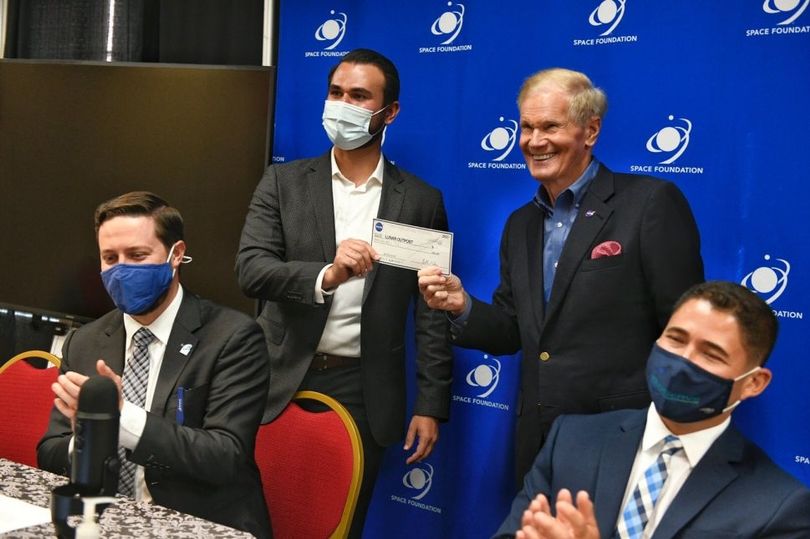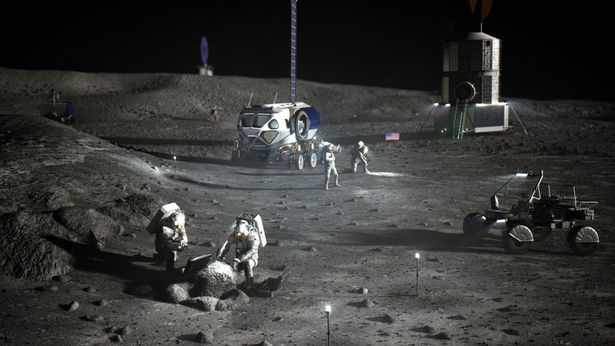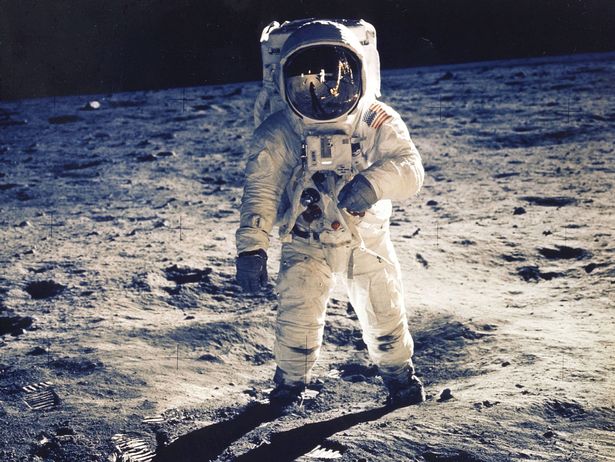The Moon has billions of resources in-store, and NASA is working hard to bring some of those rich minerals back to Earth in conjunction with private enterprises. This week, the US space agency made the first payment to a firm under a Space Resource Contract to make the dream of Moon Mining a reality.
NASA administrator Bill Nelson delivered a token of 10 cents – roughly 7p – to Justin Cyrus, CEO of Lunar Outpost, for starting the moondust initiative. Future colonists might use moondust, but NASA should return significant amounts to Earth for testing.
“We had contractual terms with them when they produce their first element,” Nelson said.

“We would give them 10% of their contract award. I am happy to present a check for 10% of their bid. Justin here’s a check for 10 cents,” he added.
Nelson says the Moon mined resources “will play a key role in NASA’s Artemis program and the future of space exploration. The ability to extract and use extraterrestrial resources will ensure Artemis operations can be conducted safely and sustainably in support of human exploration”.
Lunar Outpost, together with another US start-up, Masten Spatial Systems, as well as the European and Japanese branches of iSpace, is one of four businesses that have been engaged to help build this “space concrete.”
The Moondust could not just be employed as a building material; if it enters a future moonbase, it could also be a harmful pollutant.

“Lunar Outpost has developed an air quality sensor to meet NASA’s need to contain hazardous moon dust,” Nelson said.
“It has already led to a technology that senses pollutants on Earth to protect firefighters”.
On the first day, the company will collect “100 grammes of lunar regolith,” said Justin Cyrus, the CEO of Lunar Outpost, to space.com.

In addition to moon dust, the company also aims to look for other resources, including water ice. Justin said that there would be some “exciting cargo” carried back from the moon in the near future.
“The ability to extract and use extraterrestrial resources will ensure Artemis operations can be conducted safely and sustainably in support of establishing human lunar exploration,” NASA says.
“Space mining will be tested and developed on the moon, building the required knowledge to implement new capabilities that will be necessary to overcome the challenges of a human mission to Mars,” NASA’s spokesperson added.


